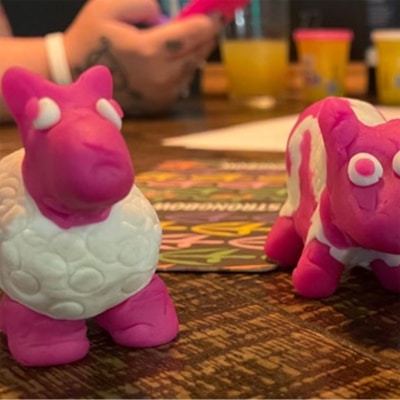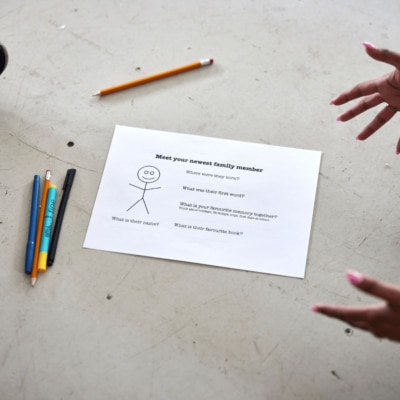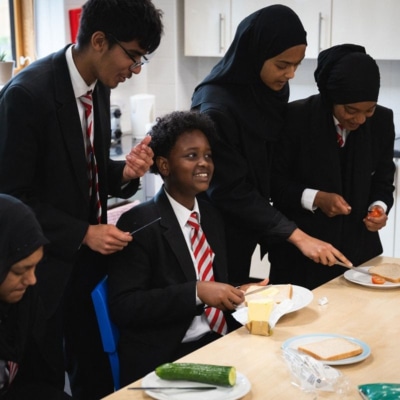On trust: what’s at play?
Posted on August 8th, 2023
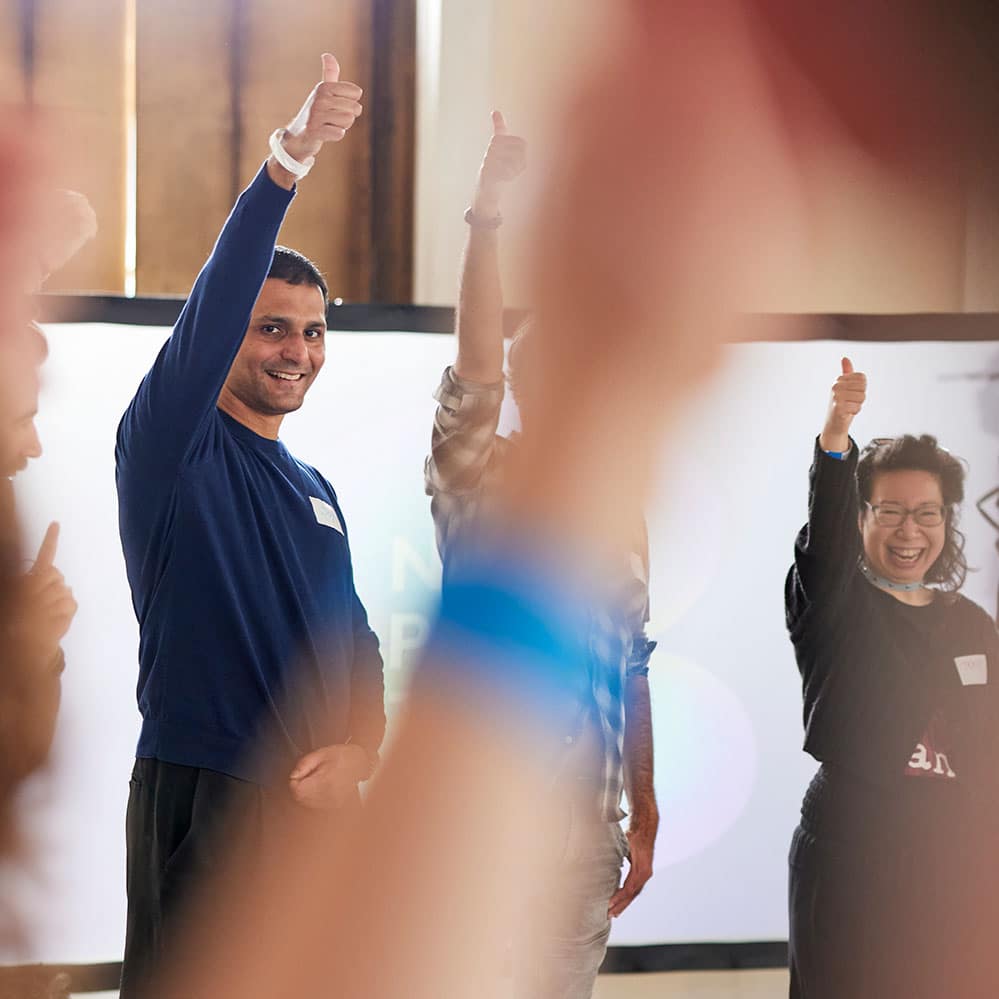
Late last year, Coney was commissioned by the Goethe-Institut in London to make a game about trust. Trust was the theme of that year’s Kultursymposium, a festival held by the Goethe-Institut in Weimar. Here, Coney Director & CEO Tassos Stevens writes on the experience, in the first of a trio of blogs about the project.
“They are filling our children’s bodies with poisons”
Late last year, Coney was commissioned by the Goethe-Institut in London with a delightfully concise brief: make a game about trust. We’d end up presenting several short games based on our research in the context of the Kultursymposium, with a playtest at Now Play This Festival at Somerset House in London. This suite of games we called The Trust Games.
We gladly accepted the brief, but focused it towards trust in experts and evidence, a live-wire issue across many different contexts – from climate crisis denial to the Truss disaster-budget – kickstarting a research process to understand some of the factors in play in building or eroding trust.
Serendipitously, I’d been reading books about the history of con artistry, a fascination of mine ever since I narrowly escaped a sting by card sharks, and adapted what I learnt into a deep dive around the psychology of trust and mistrust. I did this in exchange with the brilliant Kathryn Beaumont-Evans, a transactional psychoanalyst, also a Coney associate maker.
Inspired by conversations with expert and film-maker Charles Kriel, we homed in on healthcare and vaccination. The documentary Dis/Informed, which Charles co-made with Katharina Viken, demonstrates how there are bad-faith actors – especially the ‘Disinformation Dozen’ – who are responsible for 2/3 of all anti-vaccination content in recent social media, and, follow the money! – usually with a business model to shill. The Dozen includes current US presidential candidate, Robert F Kennedy Jr, whose front name Children’s Health Defense speaks to how anti-vaxxers hook into parents concerned for their children, with susceptibility for radicalisation being found especially in those who are also interested in non-conventional health-care and well-being, like ‘Yoga Moms’.
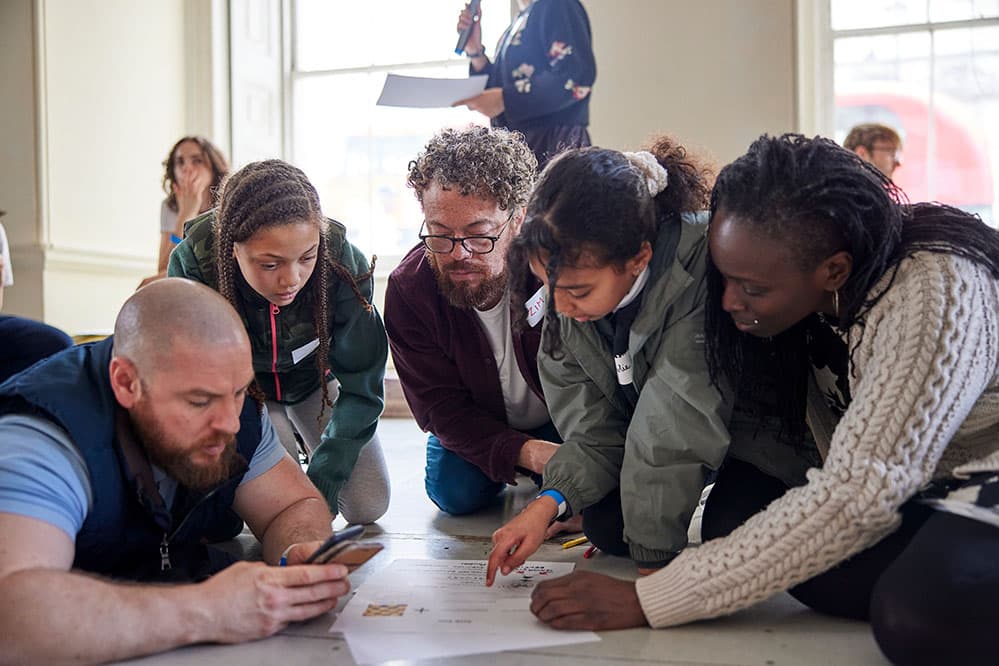
Image from The Trust Games at Now Play This, April 2023.
You can imagine the quote opening this post – “They are filling our children’s bodies with poisons” – echoed across social media over the pandemic, but actually it’s something my mum said to me, quoting her own mother in the late 1940’s. My nana Floss was a vaccine-sceptic, from a well-grounded distrust of a paternalistic establishment, and also her family’s interest in alternative diets, being very early adopter vegetarians. Floss changed her mind – and got my mum vaccinated – after witnessing another child die tragically of diphtheria.
More recent fears have been exponentially amplified by social media; or what we might better call emotional media, because it’s the emotions it provokes which we share. Twitter is a racket, as Kathryn argues.
Another researcher, Sander Van Der Linden has recently published an excellent book Foolproof, about his work in misinformation and a theory that if you can help players recognise some of the tactics of bad actors’ manipulation, you might give them a “cognitive inoculation” against misinformation.
We’ve broadened this towards a theory of change based on psychological inoculation: as well as helping spot the external tells of misinformation, an awareness of the buttons – both beliefs and emotional sensitivities – that can get pressed inside you or others, and the biases with which we all see the world. Play helps you in active learning of these for yourself, and towards empathy in understanding others.
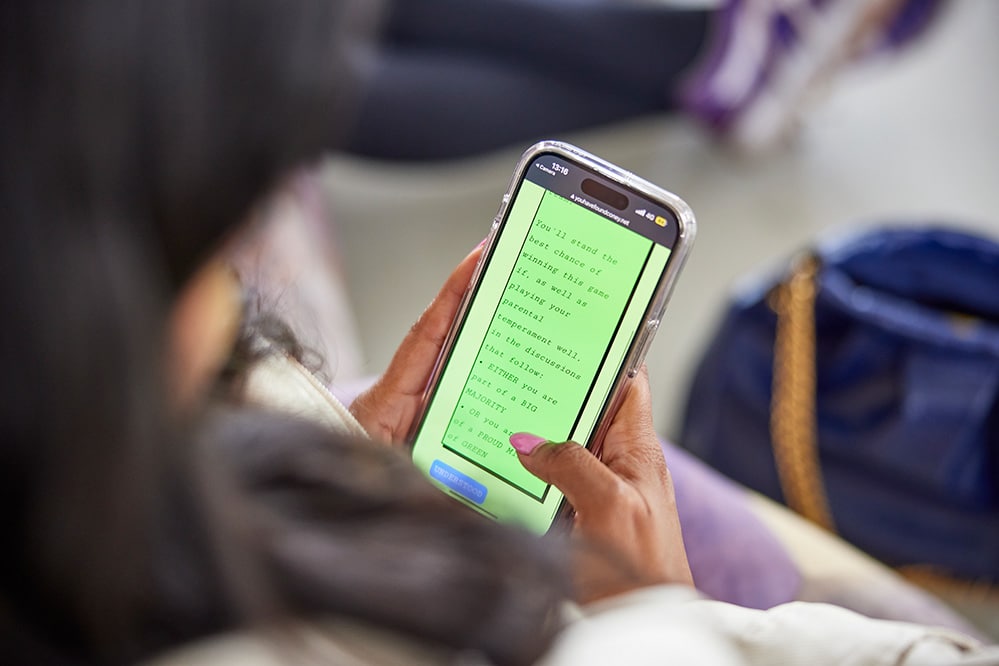
Image from The Trust Games at Now Play This, April 2023.
Based on our research, we ran a game-jam with a small team of Coney makers. Cesía León-Alvarez made a delightfully sly game about Headlines and the tricks they can play. Zoe Callow, who had also researched trust in the UK healthcare system, devised a game called The Parent Trap about the pressures on parents to get things right. This also acted as a brilliant warm-up for a game I made with Kathryn, Blue Hands, about a group of parents chatting outside the school gates about a fictional pandemic, with different roles based on beliefs and emotional buttons. All of these games were created in the context of the Kultursymposium Weimar 2023 with support from the Goethe-Institut London, being playtested at Now Play This in London in April, before taking them to the Goethe Institut’s Kultursymposium in Weimar in May.
You will be able to play them all in a Playful Social, a live online event of play and conversation we’ll be programming in our Pop-Up Playhouse Bar, coming up in the autumn (date tba).
But right now, you can play The Postal Prophet, a short online game I made about a bias we all have… to say what, would be a spoiler.
And we’re keen to find opportunities to make useful playful interventions based on what we’ve learnt. If you want to have a chat, please drop a line to Emily and Tassos via [email protected].
By Tassos Stevens.
In this R&D, Coney is represented by: Cesía Leon-Alvarez, David Finnigan, Emily Davis, Kathryn Beaumont-Evans, Magnus Copps, Tassos Stevens and Zoe Callow.
Photography credit: Ben Peter Catchpole
Back to all posts

